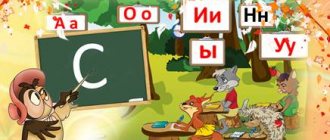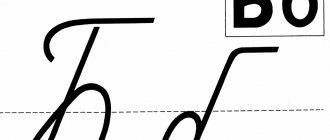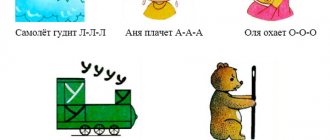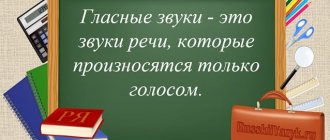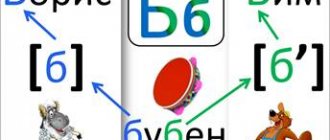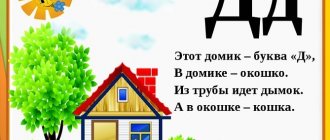Poems for diction
- A bug fell into Cheburashka's cup, Good Cheburashka took out the bug, put the bug on a piece of paper to dry. The bug dried up, rose from the piece of paper, and again fell into Cheburashka's cup.
- The blue moonlight did not let the donkey sleep, The donkey sat down on a boulder And yawned and yawned... And by chance the donkey suddenly swallowed the moon, Smiled, sighed - And fell asleep calmly.
- Evil rats Gnawed the roof, But a red kitten came, the rats ran into the holes and trembled there with fear. Khryusha - a piglet Oinks in his sleep: Oink and oink! Oink yes grunt! Give me the apricots! Piggy Pig, Before you eat, take some soap and wash your snout!
- Ten little chickens wandered into our kindergarten. They were brought in from the street by the Mottled Chicken. Dear chicken, you are on the wrong street, this is a kindergarten. But not for chickens!
- Sy-zy, sy-zy, it became boring without a goat. Se - ze, se - ze, I picked grass for the goat. Ri-li, ri-li, the cranes have arrived. Sha-zha, sha-zha, we found a hedgehog in the grass. Shche-zha, shche-zha, dirt on the bear’s shoulder. Zhi-shi, zhi-shi, they are as good as candy. Zu-su, zu-su, they don’t let a fox into the house. La-ra, la-ra, there is a mountain on a mountain. Pu-bu, pu-bu, an owl sits on an oak tree. Pa-ba, pa-ba, and under the oak tree there is a hut. Hey, hey, hey, chicken legs by the hut. No, no, no, that hut is coming to you. You, you, you, I found your traces. Those are the same, those are the same, but you are nowhere to be found. Tu-doo, tut-doo, and I go with a pipe. Ti-di, ti-di, come quickly.
- We can’t understand Dasha in any way, After all, Dasha has porridge in her mouth. But not buckwheat and not pilaf - This porridge is made of words!
- The letter “R” loves the tiger cub - He has been growling it since childhood. The letter “R” loves fish - Best of all... he is silent.
- Our little pig grunts loudly from the cradle on the letter “R”. I will be close friends with him - “R” will help me teach.
- I’m already skipping to my lessons with the speech therapist: After all, I can show my tongue to a strict teacher!
- Every officer must speak “R” perfectly! After all, otherwise he will not be a soldier in an even line. (Commands: “Attention!”, “Align!”, “Line up!”, “Pay off in order!”)
- It doesn't suit a deputy or a singer to be burry. Don’t give bread to parodists, learn to speak purely.
- We sat down in order, doing exercises together, not with our feet, not with our hands, but with our... tongues.
- Yesterday's hail damaged the grapes.
- Seryozhka cuts radishes into okroshka.
- And Marina’s gift included three huge tangerines.
- Tiger and lynx are relatives for pussy, Turnips and radishes are for radishes.
- Arthur in the portrait Wearing a burgundy beret.
- The rat has cheese rinds in his hole.
- Thirty-three huge crayfish, All in elegant red tailcoats.
- Spring rye is a grain crop.
- Princess Arina has three feather beds on her bed.
- We congratulated Ira on the radio.
- Cigarettes and cigarettes are all prohibited for the guys.
- Ice hole in the pond - I’ll come to fish.
- Our Borka dove with a beaver, but Romka dove with an axe.
- The driver is turning the steering wheel early in the morning.
- Curly redhead Yura is proud of his hair.
- Radio designer Invented a loudspeaker.
- A warm appeal to the people: Take care of your native nature!
- We will come to the holiday dressed up, neat and tidy.
- Crosswords and charades We are happy to solve them.
- I am happy to correct my speech apparatus.
- Arthur bought a tour to Europe.
- Prokhor and Varvara are a wonderful couple.
- The cook at the tavern guaranteed pasta for Ira’s side dish.
- And in the hands of the children are multi-colored balls.
- Star Raven repertoire: In the morning, in the evening - everything is CARRR!
- In our lake, Andrey Thirty caught eels. Fry, smoke them and boil them - Very tasty eels.
- To get the kernel from a nut, you need to crack through its shell.
- The beaver gnaws birch trees with its teeth, as if with sharp incisors.
- Sveta saw pineapples on a pine tree in a dream.
- The pussy asks Sasha: “Share the sausage!”
- The goose took a bath, but remained dry.
- In the garden, among the branches, a nightingale whistles.
- I tried, I tried - I signed for the parcel.
- The last leaf has fallen from the autumn aspen.
- The owl is observing the hourly routine, everything is on schedule, as agreed. (According to A. Usachev)
- Lenka treats Kolka’s sick knee with a green peg.
- I made Malvina's poodle from clay.
- I divide the orange into slices for Alina and for Kolka.
Storm from the shore
Tossed over, overturned The white-whiskered eels got angry and went wild. Thrown down, thrown up, Unraveled and intertwined from dawn to dawn. Trembling snakes, squealing snakes, What kind of dance, what kind of fairy tale have you started in the darkness? With swirling mists splashing the path, you have closed and obscured all the fairways to the ground. Encircled by the darkness, the ships were tossed about, lost in the ocean, tossed about uncontrollably, Water snakes, fire snakes lured them into the abyss. How are you deceiving? Isn't it the swiftness of the bending and twisting of long elongated bodies? And aren’t you caressing the intoxicating caresses that lead you to an unknown limit with slowness?
Tongue Twisters. What is this?
These are small humorous phrases that use difficult to pronounce and difficult to combine words and sounds.
They are also called tongue-breakers. If you try to pronounce any of them without preparation, then, as a rule, all familiar words turn into a mess of sounds and letters. But after some training you will be able to cope with the task.
These funny, difficult to pronounce phrases were invented to improve diction. What then is diction? This is a clear and precise pronunciation. And good pronunciation in vocals plays a very important role, because this is how the performer can convey the emotions and meaning of the song.
To develop good and clear diction, it is necessary to work on the development of each organ of articulation. They are divided into two large groups: active and passive.
The first category includes movable organs - vocal cords, tongue, lips, soft palate, lower jaw and posterior back of the pharynx. The passive group includes all fixed organs: teeth, upper jaw, alveoli and hard palate.
Many people mistakenly believe that tongue twisters are children's entertainment. In fact, practicing diction with the help of tongue-breakers is very widespread among adults whose activities involve various kinds of performances. This may include:
- Singers;
- Artists;
- Politicians;
- People who regularly speak at conferences;
- Presenters;
- Teachers etc
Tongue twisters carry 2 basic tasks:
-
. ” Many presenters and those who have to give a speech in public first pronounce 2-3 complex tongue twisters. This is how they warm up to avoid hesitations and hesitations during the performance. - Training for clear speech
, without which it is impossible for any speaker to speak.
The meaning and role of poems in the development of diction
There are many exercises and techniques for training diction. The most interesting among them is the reading of poems - both special and classical versions.
The peculiarity of this “poetic” method is its simplicity: it is suitable for both children and adults. The poems have a rhythm that helps you control your breathing, place emphasis on certain words, and learn to observe intonation pauses.
A poem to improve diction is a kind of tongue twister, framed in a rhymed form. This allows you to pay attention to those sounds that cause difficulties in pronunciation (“r”, “sh”, “s”).
A certain “singing” form of poems makes it possible to emphasize vowel sounds, which regulate the correct pronunciation of words and intonation, which plays a decisive role in the development of diction
The task of any technique (and poems, in particular) is the correct presentation of speech.
Thanks to this, a person will be able to clearly express his thoughts, make the necessary impression on his interlocutor, and prove himself in professions where communication skills are important.
Once upon a time there were three Chinese - tongue twister, full version
Try to learn and speak this tongue twister about the Chinese. If you succeed with diction, then everything is in order.
Once upon a time there lived three Chinese: Yak, Yak Tsidrok and Yak Tsidrok Tsidrone. Once upon a time there were three Chinese women: Tsypa, Tsypa Drypa, Tsypa Drypa Limpopone. So they got married: Yak on Tsypa, Yak Tsidrok on Tsypa Drypa, Yak Tsidrok Tsidrone on Tsypa Drypa Limpopone. So they had children: Yak Tsidrok with Tsypa - Shah, Yak Tsidrok with Tsypa Drypa - Shah Sharakh, Yak Tsidrok Tsidrone with Tsypa Drypa Limpopone - Shah Sharakh Sharone.
Technology for practicing diction using poems
Since poetry is an effective form of developing diction, there are many methods for practicing pronunciation with their help. As mentioned above, you can train the pronunciation of sounds with the help of classical works or special, “narrator” poems.
The first option is more suitable for teenagers, as well as adults preparing for public performances. Speech therapists recommend reading poems by Homer, V. Mayakovsky, A. Blok, since these authors have a clearly defined rhythm (either smoothly melodious, or sharp and clear).
For children and adults with speech disorders, special poems are suitable where attention is paid to problematic sounds. Examples of such works are “Storm from the Shore” (“Thrown over, overturned ...”), “Live on the radio”, “Don’t leave the room” and others.
There are two main methods for reading poems. The first involves reading in one breath, which will teach you to control intonation and air flows necessary for pronunciation.
The second technique involves a leisurely but very clear pronunciation. Phrases can be recorded on a voice recorder, after which, after listening, you can “work on mistakes”, noting problem areas in pronunciation. And don’t forget that hard work and perseverance will certainly bear fruit.
So, poetry for diction is the most effective means. Thanks to rhyming lines, the articulatory apparatus can more easily cope with the pronunciation of complex sounds.
Related posts:
- What is "War and Peace" about? Summary of the novel “War and Peace” by chapters. All answers...
- P.P. Ershov “The Little Humpbacked Horse” - summary of “The Little Humpbacked Horse” by P.P. Ershov - a very brief summary for the reader...
- I.S. Turgenev “Mumu” “Mumu” I.S. Turgenev: read the story ONLINE without registration. The work in its entirety...
- The concept of “fan fiction”: what is hidden behind the name Fan fiction is a modern literary work with an interesting history. It turns out that...
Exercises and techniques
For an adult, it is important to speak beautifully and coherently. And in order to develop this skill, to improve your speech, you need to constantly work on yourself. The following exercises will help you master the skill:
- Expanding vocabulary. Choose a short prose text that you like. Arm yourself with a Russian language dictionary and a dictionary of synonyms. Your task is to replace words in the text with synonyms. Instead of words, you can choose phrases and catchphrases. At first, try replacing only adjectives, and over time move on to other parts of speech.
- To develop logic and intelligence, work with keywords. To do this, select a small text and, without looking, point your finger at some word in it. This can be absolutely any part of speech that carries a semantic load. In this way, define 5 keywords for yourself. Use your imagination and logic and come up with a story or story using keywords. At a later stage of training, you can choose more keywords.
- To develop confident speech and give it the right emotional coloring, work with the text from the previous exercise. Stand in front of the mirror. Read your text without emotion. Then give it an emotional twist that seems appropriate to you. At the same time, watch your facial expression. Would it be appropriate if you were telling the text to someone? Work with multiple emotions. Read the story with joy, sadness, embarrassment, disappointment, and any other feelings you can remember.
- Use a voice recorder. You need to record your voice four times. The first two times you must read a poem and a prose piece with expression. You cannot read the third and fourth times; you must recite the same works by heart. Evaluate your speech according to two criteria: whether you like it and whether others would like it. You should speak from memory as confidently and with the same expression as when reading. Work with this exercise until the speech seems perfect to you. If you have problems memorizing a poem, then read our article - how to learn a poem quickly and easily by heart.
- This exercise will effectively improve the speech of an adult. But to complete it you will need a partner. As in one of the previous exercises, select 10 keywords from your favorite text. Using these words, you have to conduct a dialogue with your interlocutor. The task is considered completed if the adults’ remarks are not strained, the conversation is easy and relaxed, and both partners are able to speak coherently and beautifully. You should feel that the conversation is interesting to you.
These are tips on how to make your speech beautiful and learn how to maintain any conversation. In order for these exercises to bring even greater effect and be easy to perform, it is advisable to first perform actions before them to warm up the muscles of the tongue, face and breathing. Diction exercises for stage speech will help us with this. Very effective activities are also described below.
Tongue twisters with several sounds
There are also tongue twisters for the development of speech and diction, which allow you to practice several sounds at once. This section is dedicated to them.
Barcarolle is the song of the gondoliers of Venice. (Sounds k, l, r)
The thief stole from the thief, wandered around the back streets, and lost all the goods. (Sounds v, r, t)
Brother Philip, brother Fedot, will push you into conflict! (Sounds v, r, t)
All March the cat sings, the second cat echoes. (Sounds v, r, t)
Exquisite script has a very powerful effect on us. (Sounds v, z, s)
We bought a lace dress for the cuttlefish, and the cuttlefish walks around showing off the dress. (Sounds k, r, t, ts)
They theorized, theorized, and pre-theorized. (Sounds v, l, r, t)
You can’t re-earn all the money, you can’t re-earn. (Sounds z, p, r)
Fifteen birds signed the petition, fifty birds did not sign the petition. (Sounds p, t, ts)
Brother! Did you take the sconce? Take it, brother, sconce. Sconce, brother, I took it. (Sounds b, l, r, t)
Anything is possible. But, perhaps, only that cannot be, that, perhaps, cannot be - the rest can be. (Sounds b, f, m)
Chlamydomonas and Chlorella store chlorophyll in chromatophores. (Sounds l, m, r)
Life is cruel to the cruel, cruelty-hardened. (Sounds w, s, t)
Tongue twisters with the sounds “sch” and “sh”
A predator is prowling in the grove - the predator is looking for food. Two puppies were chewing a brush in the corner, cheek to cheek. Swifts, tap dancers, goldfinches and siskins are chirping in the grove. Sasha accidentally hit a bump with his hat. You even stained your neck, even your ears with black mascara. I can't find our frog's ears. Plump Mishka puffs like a chubby. I walked over the pebbles and found a silk fur coat. Timoshka Troshke crumbles crumbs into okroshka. The cat on the window is sewing a shirt for Ermoshka. I’ll walk the filly sideways along the strap, along the log. On the window, a cat deftly catches a tiny midge with its paw.
Let's sum it up
When working on diction, the principle applies: learn to speak slowly in order to speak quickly. At the first stage, it is not speed that is important, but the clear and correct pronunciation of each sound. It is important to remember that a child often imitates those around him, including in his manner of communicating. Therefore, at home he should be surrounded by correct, “pure” speech. Parents must pronounce all sounds themselves and correct the child’s mistakes.
With regular training, of course, there will be results. However, for quick speech correction or for serious defects, such as stuttering, the help of a speech therapist is required. Therefore, it is important to contact a specialist in time. Of course, it is better if the meeting with a speech therapist-defectologist takes place before school or in primary school, so that learning your native language does not turn into a test for the whole family.
